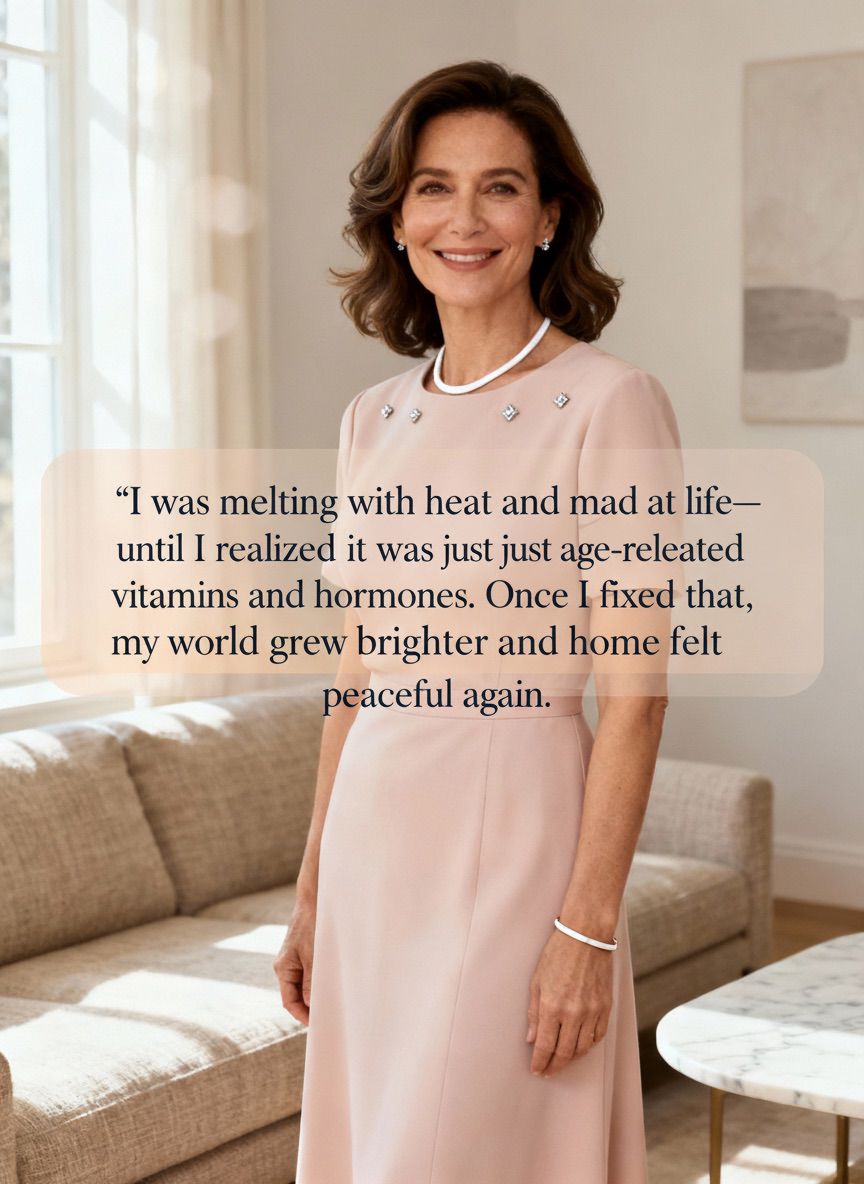The Silent Exhaustion Ends Here.
Find your way back to yourself: the clarity, energy, and balance that modern life silenced.
You Are Not Alone. We See You.
Feeling overwhelmed, exhausted, or "lost" between career, family, and the pressure of self-care is the new normal. We recognize the burden of self-criticism and the pain of mental fatigue that no one sees.
InnerHer is the refuge for the woman who seeks more than just survival: she seeks to flourish.
*InnerHer. Comfort, Balance, and Presence.*

What Your Soul Asks For.
Mental Clarity
Hormonal Balance
Unshakeable Energy
Intimate Comfort
Restart Your Journey.
Our Solutions for the Woman Who Prioritizes Calm.

Hormonal Balance Guide
Understand and Soothe Hormonal Fluctuations After 30 with knowledge and grace.
Discover More
Emotional Serenity Blueprint
Proven Tools for Managing Daily Overload and Cultivating True Presence.
Discover MoreCalm is a Story of Return.
It's not about changing who you are, but remembering who you've always been. Our stories are real narratives of women who, through InnerHer's support, transformed exhaustion into peace and overload into presence.
Your transformation begins with the decision to listen to your inner voice.
Read Transformation Stories
The 5 Pillars of Your New Balance.
Emotional Balance
Embracing internal chaos to find serenity that withstands stress.
Mental Clarity
Cutting through the noise of self-criticism and focusing on what truly nourishes your soul.
Feminine Energy
Recovering vigor without relying on stimulants, honoring your cycle and rest.
Hormones in Order
The knowledge that empowers you to harmonize your body from the inside out.
Gentle Nutrition
A gentle and conscious approach that nourishes the body and calms the mind, without restrictions.
Receive weekly emotional clarity straight to your inbox.
The InnerHer newsletter is an intimate letter. No noise, just gentle tools and deep reflections delivered directly to your inbox, so you can start your week in peace.



